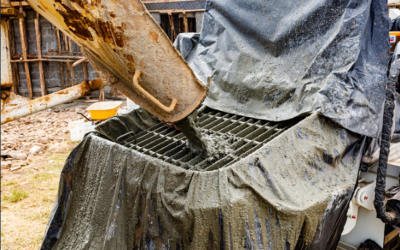Executive Summary. Most resume readers consider professional experience, as an engineer or construction professional, as starting upon graduation. In a cooperative education program, it’s starts during college.
What is cooperative education? Cooperative education (or co-op) is time spent during your college education out in the workforce. Not in school at all – just working. And for universities that are serious about it, it’s a requirement for graduation.
Is this like interning? Yes, but no. Interning seems to come along with the term “unpaid”. Co-op experience is paid. Other than that, to my understanding, they’re identical. The co-op in the office is the new kid in the company who may be doing remedial tasks, or in my case doing some real work.
Give me more details on the process. I went to Drexel University in Philadelphia. It still appears to be a mandatory co-op school from what I’m reading online. I graduated like everyone else then, with three each, 6-month experiences. I had one with a heavy/civil contractor, one with a local civil contractor/material supplier, and one with a pharmaceutical company in their facilities construction department.

I went to college freshman year and got my one and only summer off. For my sophomore, pre-junior, and junior years I co-oped at the three companies above. Each of these stints was six months.
I landed these jobs from the Co-op Newspaper published every six months. I’m sure it must be digital now, but back then you went through the newspaper looking for jobs of interest and then sent the employer a cover letter and resume. Then you got an offer, or not. Just like the real world.
This is real resume experience you say? 100% real experience, at least for me. I still today think back to those experiences as having shaped my career and experiences which I learned from. Things I did during that eighteen (18) months included:
• Test concrete for air, slump, and strength.
• Calculate concrete quantities for pours and talk directly to the concrete plant
on needed quantity.
• Calculate final bridge deck elevations.
• Help design and then solicit bids on facility improvements.
• Do quantity takeoffs on concrete formwork.
• Review and approve invoices.
• Learn document control techniques like document logging.
• Learn change management.
My story. Well, you pretty much read it. My parents were then, and I am now, so pleased that I went through a program like Drexel’s cooperative education program. It takes an extra year, but it is miles ahead of other programs. We take on new graduates here in my area all the time. The students themselves from the local university complain about a lack of “real world” experience. I have plenty of new grads working for me who have never seen a plan sheet. I came out in 1993 with real experience and a job from my pre-junior year employer. I still talk to that employer – the executive there recently even provided a P.E. reference for me.
There is a downside. It is that having been a co-op, you tend to carry that vision in the employer’s eyes of “that guy’s just a kid”. I guess it’s like the relationship that your parents have with you now – to them you’re still six years old watching cartoons on a Saturday morning in your footy pajamas.
Work safe!






0 Comments